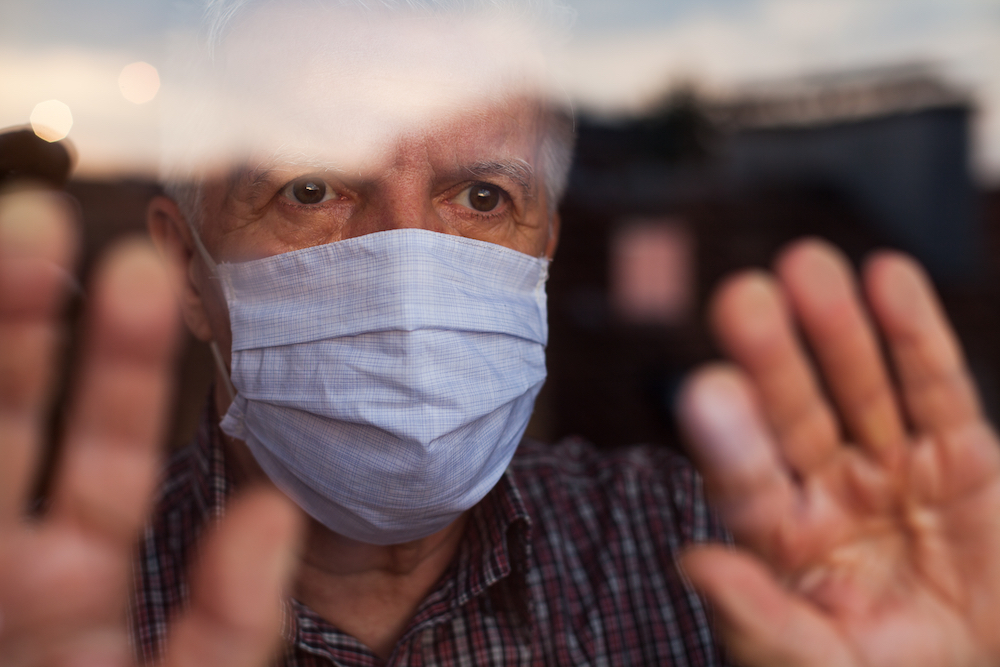Music and face-to-face connection. Both offer hope. Both reduce stress. Both are underutilized in healthcare. We live for connection. It’s true that many of us have music and connection. However, as the pandemic has revealed, many do not.
Emerging from the novel coronavirus’s devastating impact have been many feel-good stories: balcony concerts, ICU patients set up with classical music, upbeat songs blaring in hospital corridors when a recovering COVID-19 patient is discharged, video calls for hospital patients and nursing home residents on lockdown. But not everyone whose movement is restricted has such access.
Though preventing the spread of COVID-19 is our priority right now, we need to pay attention to the psychological effects of confinement on our elders and their families. Concerned with spreading the virus to the most vulnerable, we are justifiably reluctant or unable to visit family elders at home or in care residences. But with restricted movement and visits, persons with dementia and their caregivers have fewer opportunities for human connection and respite, and the stress is palpable.
Long-term care management knows the importance of reducing exposure when the flu or other infectious disease strikes. In nursing homes and assisted living across the nation, the pandemic has confined residents to their rooms for meals, cancelled activities, prevented families and friends from visiting, and totally restricted socializing in order to prevent “community spread.” These “lockdowns” heighten isolation stress and disorientation among persons with dementia and increase loneliness for all too many.
For those facing serious health challenges or cognitive decline, the loss of in-person visits, hugs, and conversations with family and friends is profound. While there’s no real substitute, escaping into the rhythm and melodies of favorite music can bring true relief for isolated elders.
U2 singer Bono demonstrated the profound power of personal music when he unveiled a special playlist for his 60th birthday, “60 Songs That Saved My Life.” “[These are] ones I couldn’t have lived without,” he wrote, “the ones that got me from there to here, zero to 60. . . through all the scrapes, all manner of nuisance, from the serious to the silly. . . and the joy, mostly joy.’”
The pandemic calls for us to unleash our creativity and improve how recipients of care perceive their experience— and their lives. Here are two easy and effective ways to begin to offset the negative hit on quality of confined life at home and in long-term care:
- Increase access to video calls in all long-term care homes.
Video calls (Facetime, Skype, Zoom) have been available for years in nursing homes, but usage is spotty. Unless the resident is tech savvy (the exception), family members need to schedule a call with someone on staff to help the connection go through. If multiple family members want to call in, or loved ones want to reach out more frequently, that is often not possible. Let’s build staff capacity to facilitate video communication, and make it as accessible as watching TV. Some facilities will make that happen. But only federal guidelines can assure systemic adoption across the tens of thousands of long-term care residences.
- Re-connect elders with their favorite music to improve quality of life.
Listening to personal music favorites does not depend on now-suspended group activities. It is lockdown-proof and can measurably lift someone’s low spirits. We’re not talking about just any music, but their favorite music, the music that engages them so fully that their mood transforms, their day is less oppressive and more liberating. Time passes more enjoyably as good memories associated with favorite music become front of mind. What a better day! Please see our guide, “How to Boost Health and Wellness with Personal Music” to get started.
As the rest of us cope with the uncertainties of the pandemic, let’s add these tools to our tool kit to maximize quality of life, even as the living situation for those in our care constricts.


One Comment
Richard
How can I influence the availability of headsets & music for patients at a specific Nursing Home?